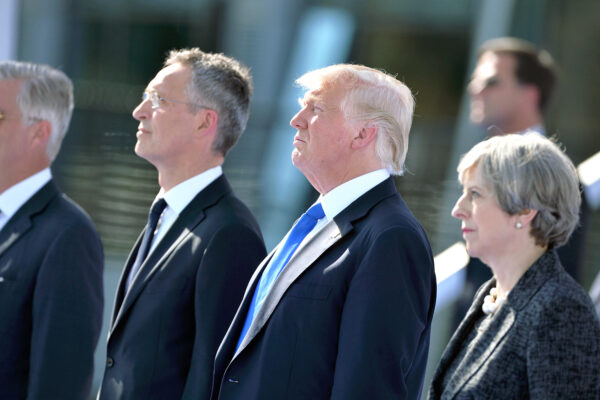
Donald Trump’s election caused many foreign-policy hands to worry that America could abandon its stewardship of the liberal world order: that constellation of alliances and institutions that has promoted peace and prosperity since World War II.
One year into Trump’s presidency, the results are mixed.
In the latest issue of Foreign Affairs, four experts reflect on the state of the world. Their consensus: The world America built has by no means disappeared, but there is no time for complacency.
The rumors have been greatly exaggerated
Jake Sullivan, a former Obama Administration official, argues that rumors of the international order’s demise have been greatly exaggerated.
The reasons:
- Nobody wants to take over America’s leadership role.
- American diplomacy has facilitated a shift from formal, legal, top-down institutions to more practical, functional and regional approaches to managing transnational issues, making the rules-based order less rigid and more lasting.
- Congress, the Pentagon and America’s allies have reined in Trump’s worst instincts.
Illiberal hegemony
Barry R. Posen of the Massachusetts Institute of Technology writes that Trump has taken the “liberal” out of “liberal hegemony”. The president wants America to remain economically and militarily dominant, but he is disinterested in promoting democracy, human rights and free trade.
Posen calls this “primacy without a purpose.” It makes America’s hegemony little different from the ones that have preceded it.
Globalization without America
Adam S. Posen focuses on the economic implications of “America First”.
“If the United States continues its retreat from economic leadership,” he warns, it “will inevitably make economic growth slower and less certain.” The resulting disorder would put the economic well-being of people around the world — including Americans — at risk.
One of the great lessons of economic history is that bullying is bad for prosperity. Good institutions — the rule of law, clear property rights, stable means of exchange, efficient tax collection, the provision of public goods, checks on official corruption — are the fundamental prerequisites for sustained economic growth.
America imposed, or attempted to impose, those institutions on the world. If it abandons that pursuit, we will all be poorer for it.
Good news for autocrats
Sarah Margon of Human Rights Watch argues that Trump’s disregard of human rights, and his administration’s refusal to promote them, has emboldened autocrats.
Given the United States’ historically spotty record on promoting human rights, there are those who think that other governments can pick up the slack. But in reality, the loss of the United States as a champion, however inconsistent its support can be, is likely to further encourage governments to treat their citizens poorly, confident that no meaningful rebuke will follow.
